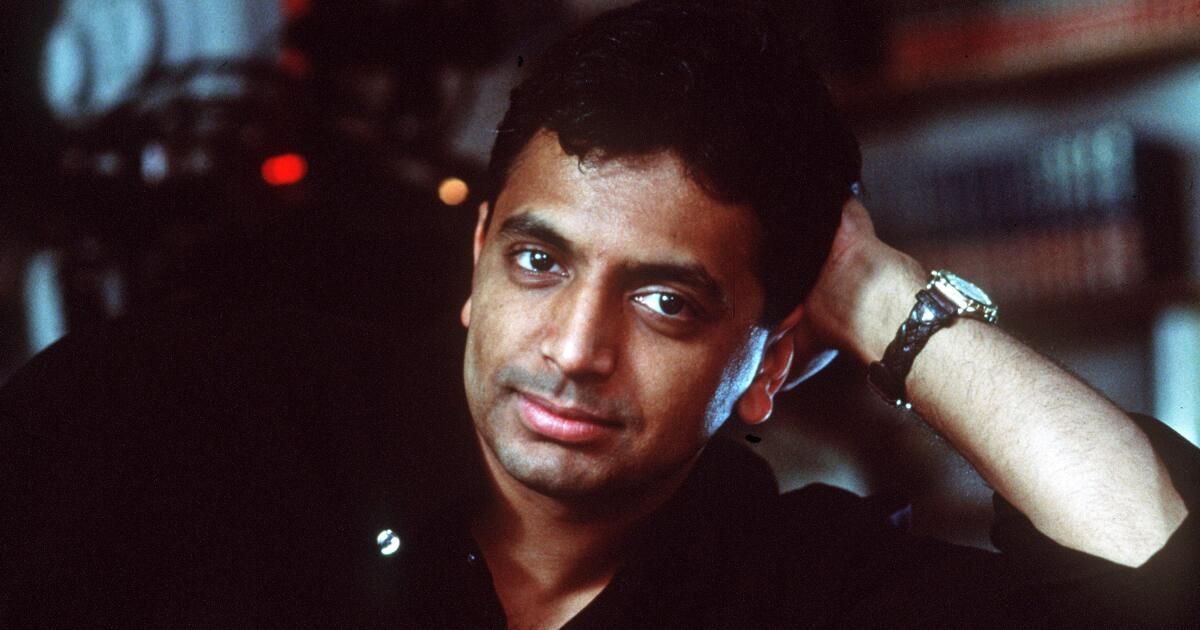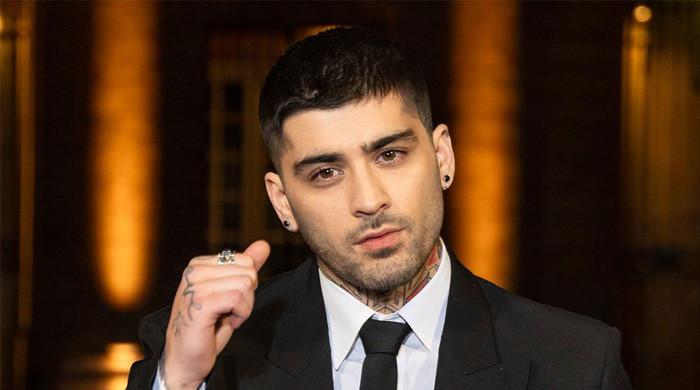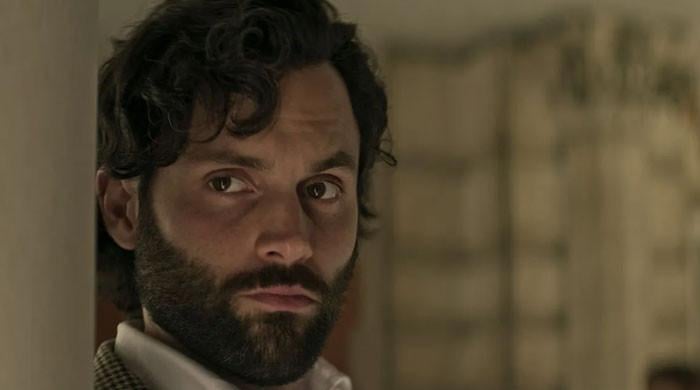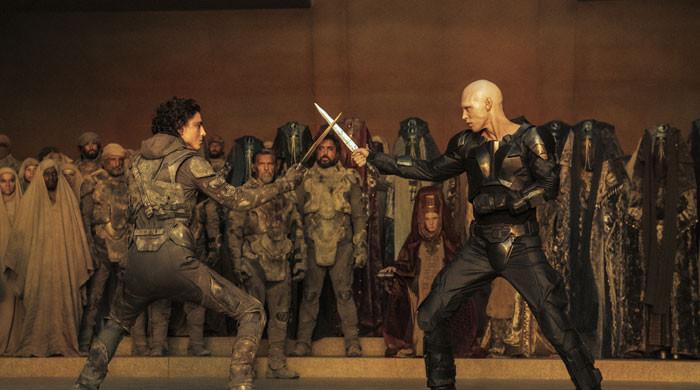(Spoiler alert: If you’ve never seen “The Sixth Sense,” please refrain from reading this article.)
Halfway through “The Sixth Sense,” Malcolm (Bruce Willis), a compassionate child psychologist, tries to cheer up Cole (Haley Joel Osment), a troubled boy struggling with secrets he’s too afraid to reveal. Malcolm tries to tell Cole a bedtime story, but it’s a rambling, uninteresting tale; eventually, the 9-year-old takes over and offers some advice on how to craft a captivating tale. “You have to add some twists and things like that,” he says.
Writer-director M. Night Shyamalan clearly took his character’s advice. It’s been 25 years since his surprise blockbuster was released, which became one of the biggest hits of 1999 and earned six Oscar nominations, including best picture (a rarity for a horror film). But arguably the film’s most lasting impact (even more so than Cole’s endless “I see dead people”) was introducing the modern viewer to the complicated beauty of the perfectly executed third-act twist. Of course, there were memorable twists in cinema before “The Sixth Sense” (for example, in Charlton Heston’s classics Planet of the Apes and Soylent Green), but what Shyamalan accomplished haunted his future films, his career at large, and our ability to enjoy those end-of-movie surprises in other people’s movies. The twist grabbed us and never let go.

The 1999 project
All year long, we'll be celebrating the 25th anniversary of pop culture milestones that transformed the world as we knew it and created the world we live in today. Welcome to The 1999 Project from the Los Angeles Times.
Many remember the first time they saw “The Sixth Sense,” but only a lucky few read the script as a spec script in September 1997, when it was optioned for a reported $2.25 million Hollywood Pictures: This was a time when high-concept original ideas like “Basic Instinct” were frequently selling for seven figures. Even before Hollywood development executives had the description in their hands, the buzz was intense, even though no one really knew what the story was about.
“That’s probably the only spec script I remember the circumstances of,” recalls Anne Helmstadter, then a vice president at Maysville Pictures, a production company run by producer Robert Lawrence and “ER” star George Clooney. (To be fair, Helmstadter was my boss at the time.) In the late 1990s, agents would typically send companies a couple of spec scripts a day, and most of them were atrocious.
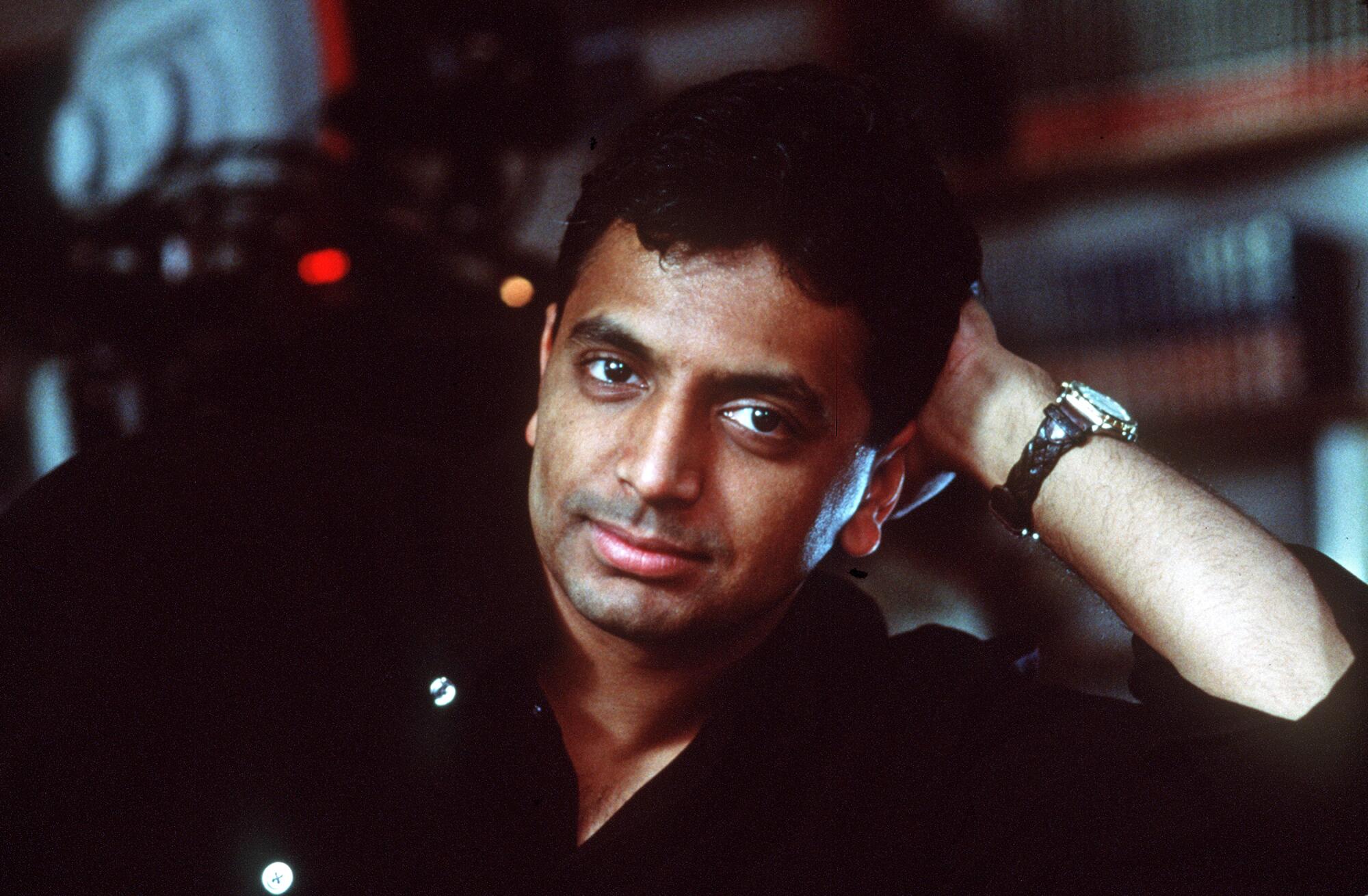
M. Night Shyamalan on the set of “The Sixth Sense.”
(Ron Phillips / Touchstone Images)
But the industry was saying that “The Sixth Sense” was different. “I remember the terms [from the agent] “The idea was, ‘It comes to you and you have to read it right away,’” Helmstadter says. Like most in Hollywood, he dove into the script immediately, anticipating a fierce bidding war between studios to acquire the project. Did he see the twist coming? “I remember thinking, ‘Something’s going to happen, what is it?’ But I didn’t see it coming.”
Aditya Sood, 48, who in 1997 was just starting out in the business as an assistant at Mark Johnson Productions, was tasked with collecting the roughly 120-page description directly from United Talent Agency. “I think I had probably written 60 pages by the time I got back to the office,” Sood, now president of Lord Miller Productions, the company behind the Oscar-winning “Spider-Verse” films, tells me. “I remember getting to page 119 and saying, ‘Wow, this is one of the most incredible scripts I’ve ever read. ’ And then I literally turned the page. It was such a good script before you even got to the reveal, and then the reveal just blew you away.”
It would also leave viewers stunned – well, most people. Everyone has that one friend who likes to brag that they saw The Sixth Sense’s twist coming a mile away, that it was so obvious that Malcolm had been dead, unbeknownst to him, the whole time. Well, good for them. Such is the power of the film that detractors felt compelled to question its greatness by asserting its superiority.
But it almost didn’t matter whether the twist worked for you or not. What mattered was that it was bold in a way that few movies ever tried to be. Previous twists relied on discoveries made by the main characters about the worlds around them. But in “The Sixth Sense,” Malcolm learns something profound about himself: He’s so obsessed with making up for failing a suicidal former patient that he never realized he’d been fatally shot. At its simplest level, Shyamalan’s breakthrough film was about people’s tendency to prioritize work over loved ones, about getting so wrapped up in the things you think you’re “supposed” to be doing that you lose track of what’s important. Like Malcolm, our preoccupation with saving Cole distracted us from the awful truth. The twist was surprising because, like Malcolm, we never saw it coming.
Audiences have a love-hate relationship with plot twists. Short-story writers like O. Henry dazzled readers with their clever endings. “The Twilight Zone” frequently featured episodes that ended with a shock. We love the roller-coaster-like pleasure of being tossed back and forth in an efficient manner. As Helmstadter, the founder of the Story Immersion Project, a site that advises emerging writers, describes the ending of “The Sixth Sense,” “that wonderful, surprising but inevitable ending where you say, ‘Oh, of course, it all makes sense. ’”
And yet there’s also a sense of betrayal that accompanies an unexpected ending, an irritation that the filmmaker hasn’t played fair, no matter how perfect the logic. Inherently, any unexpected ending is a violation of our tacit agreement with a movie: We think the movie was playing us, and then, at the last moment, we discover we’ve been tricked. Only the best twists don’t feel like cheap tricks, their narrative mechanics so retroactively airtight that you don’t resent being tricked. That’s why “The Sixth Sense” remains so popular: Maybe the occasional scene between Malcolm and his oddly distant wife Anna (Olivia Williams) is, in retrospect, clumsily staged, but otherwise Malcolm’s limited worldview holds up artfully after multiple viewings.
Shyamalan benefited from audiences having no idea who he was. By 1997, when he sold “The Sixth Sense,” he had directed only the little-seen 1992 indie drama “Praying With Anger,” in which he starred. (His family film “Wide Awake” — which, by the way, also contained a twist ending — wouldn’t arrive until 1998, a year before “The Sixth Sense.”) So there wasn’t much sign that the budding auteur, who turned 29 the day his masterpiece was released, would blow us away.
But as a movie star closely associated with an iconic role he could never shake off, Shyamalan would come to be defined by the twist, especially as he continued to seek similarly expert endings in his subsequent films. But diminishing returns inevitably kicked in, even in those rare instances when the twist was compelling. “I remember someone handing me the script for ‘Unbreakable,’” Sood says, referring to Shyamalan’s next film. “It was a totally different experience because we were wait for the turn.”
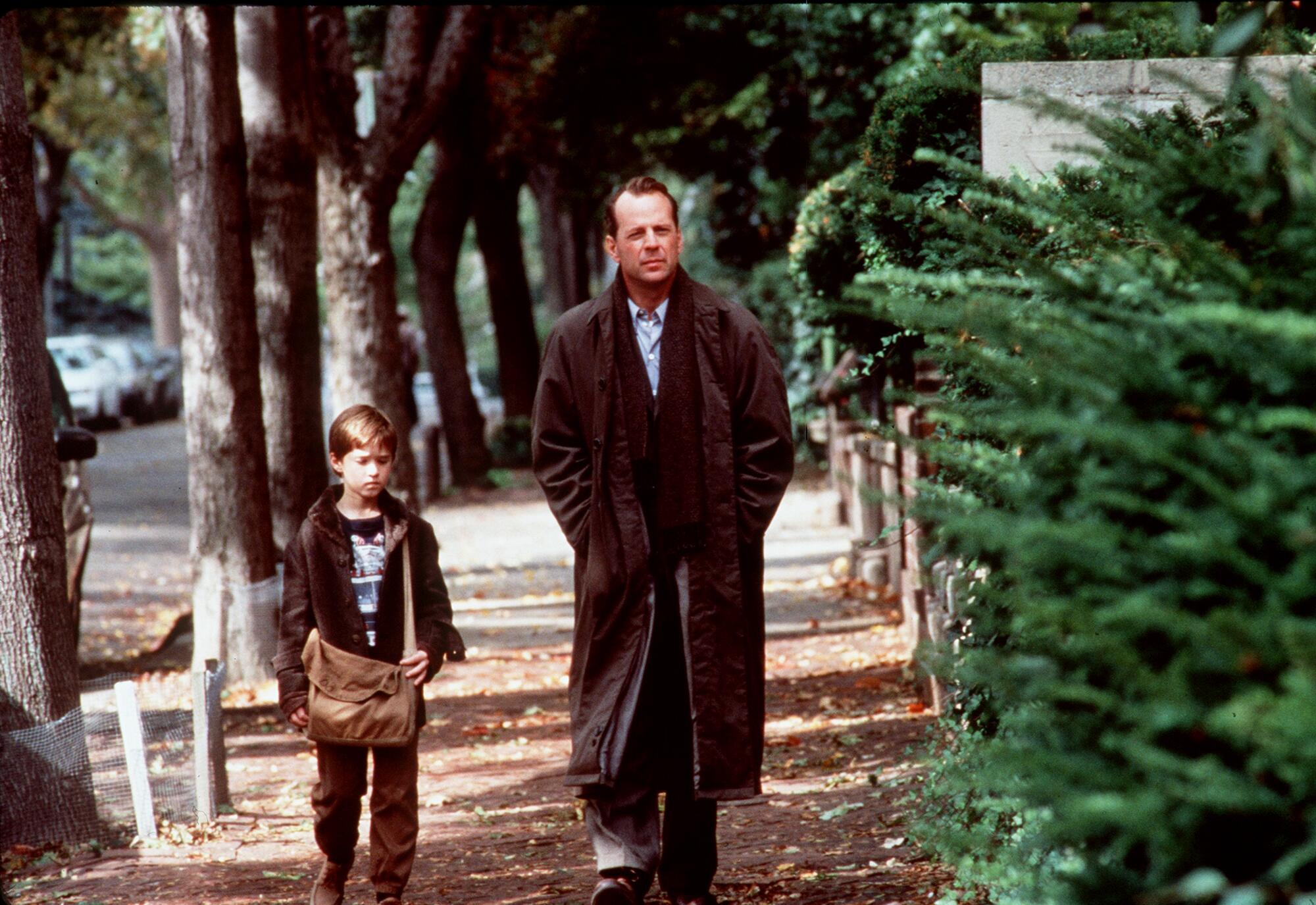
Haley Joel Osment, left, and Bruce Willis in the film “The Sixth Sense.”
(Ron Phillips / Touchstone Images)
Part of what made the ending of “The Sixth Sense” indelible was that we hadn’t been very alert to its possibility. But such an ending can only be executed once, and so what had been emotionally moving about “The Sixth Sense” quickly became a gimmick — or, in the case of Shyamalan’s much-derided 2004 film, “The Village,” a validation for those who thought the director was a one-size-fits-all actor. Talent was no longer the yardstick by which to measure his work. The only question was, “How good was the twist?”
If it’s any consolation, few other filmmakers have been so lucky with a big surprise ending over the past 25 years. With rare exceptions, like “Fight Club,” “The Others” and “Shutter Island” (movies whose final revelations, like that of “The Sixth Sense,” speak to something tragic about their protagonists), most were mocked for their ridiculousness. In 2019, Paul Feig’s “Last Christmas” focused on a love story between Emilia Clarke and Henry Golding, in which, as everyone who saw the film correctly guessed, Golding was actually dead. Even last year’s touching “All of Us Strangers” was slightly diminished for me because, about halfway through, I noticed that whenever Andrew Scott hung out with the too-good-to-be-alive Paul Mescal, no one else interacted with them. Vulture explainer (Regarding the twist ending of “All of Us Strangers,” screenwriter Zing Tsjeng playfully theorized that Scott’s character was Osment’s Cole, now grown up.) We had learned to watch for telltale signs. Shyamalan had unconsciously conditioned us never to let our guard down.
He will never escape his film's most enduring legacy. With each new Shyamalan film, publications reclassify his twist endings. Interview 2019The New York Times asked him to name the biggest plot twist of his life. In a sense, he’s stuck: When his movies have a twist, we compare it unfavorably to the twist in “The Sixth Sense,” and if they don’t have a twist, we’re strangely disappointed.
Last year, Shyamalan was asked about criticism of his penchant for twists, to which he responded: answered“I don’t think about that. If I had to criticize critics, I would say that their track record in art hasn’t been the best.” It was a terse, defensive response, an indication that he probably does think about that. In Shyamalan’s mind, he moves in the world of thrillers and mysteries, genres that often have unexpected resolutions. But his reliance on trickery has marred his filmography, leaving the filmmaker with a spotty track record.
A quarter-century later, M. Night Shyamalan has enjoyed a career of ups and downs, hits and misses, twists that worked and twists that surely didn’t. His last film, “Trap,” which features a lackluster ending, underperformed on its opening weekend, and its profitability is far from assured. Rightly or wrongly, he will always be punished for accomplishing one of the hardest things about storytelling and then daring to repeat it. Getting it right is hard enough: creating an ending that leaves viewers stunned, forcing us to rethink everything we just saw, is nearly impossible. Maybe if he had stopped looking for such endings, we would have forgiven him by now.
Shyamalan’s poignant, remarkable turn was a kind of magic — “Some magical things are real,” Cole tells Malcolm, again with wisdom beyond his years — but what makes magic so captivating is that it feels special. It’s not meant to be endlessly replicated.

